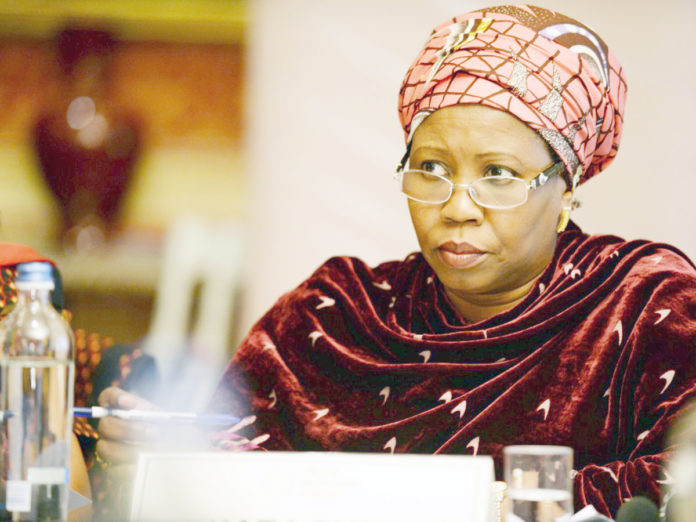The Federal Government has pledged commitment on the advancement of gender inclusivity and responsiveness in commodities value chain and export.
Amb. Mariam Katagum, Minister of State for Industry, Trade and Investment, made this known on Thursday in Abuja, at the official launch of Gender Initiative of the Commodities and Export Department (GICED).
GICED is designed by the Commodities and Export Department (CED), of the ministry to harness available resources to empower and strengthen women capacity to unleash their potentials in commodities and export trade sub-sector.
Highlighting the importance of the initiative, Katagum stated that a lot still needed to be done in the area of women empowerment in Nigeria.
She said that in order to promote women participation in business, the Federal Government directed that 45 per cent slot should be given to women in the ongoing Micro, Small and Medium Enterprises (MSMEs) survival fund application.
She advised women to carry out ongoing Corporate Affairs Commission’s business registration for business formalisation to access finance, market and other government initiatives.
“The female gender should be equipped and ready to break the glass ceiling and ascend to new positions of power in all spheres of our society, both in the Public and Private Sector.
“However, women especially, need to change old mindsets, take advantage of opportunities, develop their capacities and embrace the notion that they are capable of doing what men can do,” she said.
Katagum urged women to work harder for self-development, building capacities, embrace punctuality and actively engage meaningful programmes and activities, without making typical excuses.
In an address, Dr Nasir Sani-Gwarzo, Permanent Secretary in the Ministry, said the programme was expected to develop confidence and capacity of women, as well as provide avenues for equal opportunities to be harnessed.
Sani-Gwarzo thanked the ministry’s technical partner, Women Arise Development and Humanitarian Initiatives (WADHI), for its commitment, especially in designing a detailed work plan and Memorandum of Understanding, which would soon be finalised.
He expressed hope on engaging consultants and technical advisers to strengthen the initiative.
Mr Suleiman Audu, the director of the department, said with the ministry’s huge mandate of creating enabling environment for businesses to thrive, the main recipients of policies designed for MSMEs were women.
According to Audu, he initiated the GICED in July, after recognising the underutilisation of women in CED, and the need to close the huge gap created by lack of female gender participation in relevant activities.
He expressed commitment to work with relevant stakeholders to remove significant barriers for women economic empowerment and increase women participation in trade.
NAN

Call:
Sandra - 07069148333
Pauline - 08174374150
Scholastica - 09060678434













